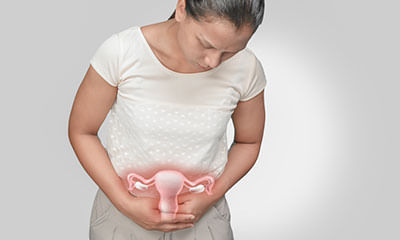All About PCOS!
Pcos: here is all that you must know about it!
Polycystic ovary syndrome (pcos) is a common hormonal disorder amongst women in their reproductive age. The symptoms of pcos being seemingly unrelated to each other, are often overlooked and remain undiagnosed. It is commonly termed as pcod (polycystic ovary disease) in which the there is an imbalance in the women’s hormones. As the name suggests, multiple cysts are formed in the ovaries that are pearl-sized (2-4mm), fluid filled and may contain immature eggs.
Whom does it most commonly affect?
Pcos most commonly affects women of reproductive age (14-45 years of age). In ceratin cases, pre-pubertal girls may also be affected by pcos.
What are the common symptoms of pcos?
Pcos, being a syndrome, is defined by a collection of signs and symptoms. The symptoms may vary from one individual to another. In case you observe two or more than two of these symptoms, make sure you undergo a thorough medical examination. Common symptoms are:
- Irregular scanty or missing menstrual periods
- Infertility such as ovulation dysfunction
- Excess or unwanted body or facial hair on the body
- Thinning hair on the scalp
- Weight problems, often leading to weight gain around the waist
- Skin problems such as skin bags, darkening of skin and acne
What causes pcos in women?
The exact cause of pcos is still not known, however, there are hypothesis suggesting a few of the common causes such as;
- Obesity
- High level of insulin
- Increased production of androgens
- Family history
- Environmental pollution and radiations
How can pcos be diagnosed?
Pcos symptoms affect more than 20% of the indian women and still remain undiagnosed at times. For an effective diagnosis, you may report of,
- Irregular periods in the past
- Tests revealing high levels of specific hormones
- Ultrasound showing polycystic pattern of the ovary
What are the possible complications of pcos?
Commonly reported complications of pcos include:
- Diabetes
- Heart and blood vessel problems
- Sleep apnea
- Uterine cancer
- Heart diseases
How can pcos be managed?
Once diagnosed, the treatment of pcos may differ from an individual to another. However, a few tips to manage/ prevent pcos are:
- Exercise regularly. Include activities such as aerobics, sports and brisk walk to your daily routine.
- Eat healthy. Include foods that are low in refined carbohydrates as it helps to regulate blood sugar levels. Also add foods rich in antioxidants, green vegetables super grain and fruits to your daily diet
- Avoid excess of junk foods, spicy and oily foods and sugary diets.
- In case you smoke, it is best recommended to quit smoking.
- Avoid stimulants. Beverages such as coffee, that act as a rich source of stimulating compounds, have been found to increase insulin production.
- Keep stress away. Combat this depression by engaging yourself in activities such as opting for bubble bath, watching an old favorite movie, reading a classic or meeting friends who could be good company.
The doctor may prescribe you will relevant medications to treat the complications, in case any.



+1.svg)
